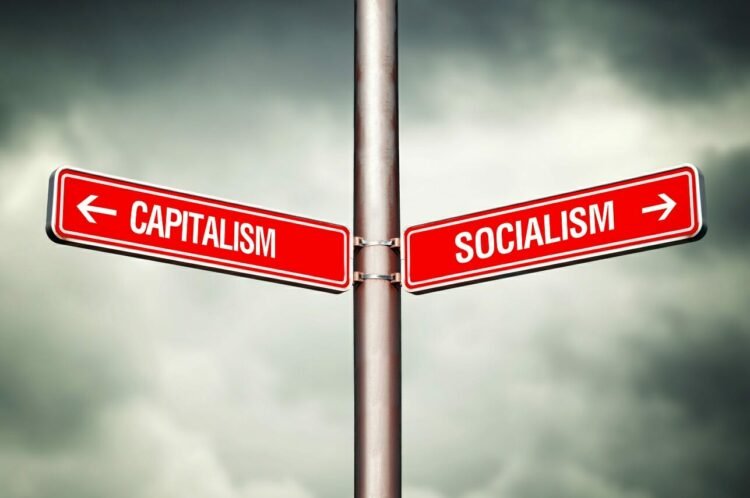Capitalist economies (also known as free-market or market economies) and socialist economies differ by their logical underpinnings, stated or implied objectives, and structures of ownership and production. Socialists and free-market economists tend to agree on fundamental economics – the supply and demand framework, for instance – while disagreeing about its proper adaptation.
Functionally, socialism and free market capitalism can be divided on property rights and control of production. In a capitalist economy, private individuals and enterprises own the means of production and the right to profit from them; private property rights are taken very seriously and apply to nearly everything.
In a socialist economy, the government owns and controls the means of production; personal property is sometimes allowed, but only in the form of consumer goods.
In a socialist economy, public officials control producers, consumers, savers, borrowers, and investors by taking over and regulating trade, the flow of capital, and other resources. In a free-market economy, trade is conducted on a voluntary, or nonregulated, basis.
Socialist economies rely on either the government or worker cooperatives to drive production and distribution. Consumption is regulated, but it is still partially left up to individuals. The state determines how main resources are used and taxes wealth for redistributive efforts.
From the Book – ‘ Know Everything about Corporate Social Responsibility ‘
Available on Amazon.in
Also Read:
(India CSR)







